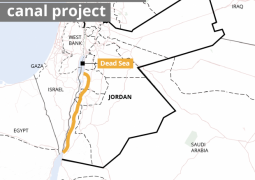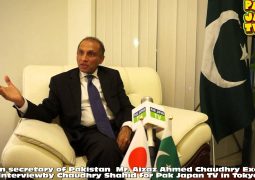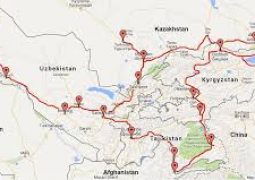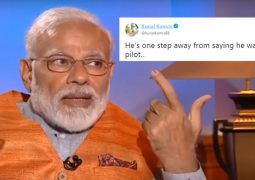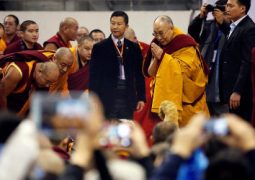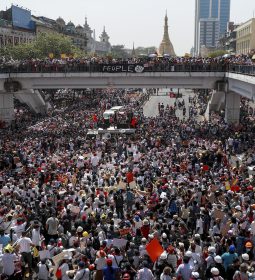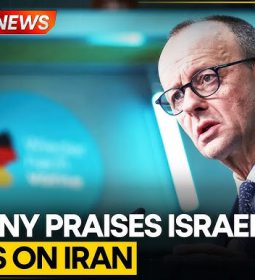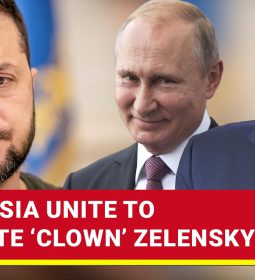How to make a politician: The transformation of Thai coup leader Prayut Chan-o-cha
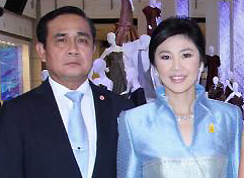
BANGKOK: By his own admission, General Prayut Chan-o-cha was never meant to be prime minister. The military was his life and purpose, his duty and calling.
But suddenly it changed, and the fate of the country altered course.
As street protests turned violent and deep social divides threatened to tear Thailand apart, Prayut took the first step of many into the political game. It is a course he has not strayed from since.
His life led from a humble childhood in Thailand’s northeast to the top post of the Thai army, before in 2014 the veteran military man assumed a new role as coup leader.
His National Council for Peace and Order – the NCPO – ousted the democratically elected government of Yingluck Shinawatra, brought down the National Assembly and declared martial law.
It also formed the National Legislative Assembly to pass laws, handpicked a committee to draft a new constitution and invoked Section 44 of the 2014 interim charter to grant itself the absolute power of issuing orders that override the executive, legislative and judicial branches.
Everything it had done, the junta said, was for peace, harmony and reform. All of it, under the command of one man.
Within four months of the coup, the general began a new career – as prime minister – the position he had never expected to hold. Or so he claimed.
“I didn’t want that,” said Prayut in December 2014. As Thais would later learn, the former army chief would also say – on different occasions – “I don’t want to be a politician”, “I don’t want to be in politics” and “I don’t want to be in power”.
For years, he refused to call himself a politician and brushed off allegations that his government has manoeuvered to keep a tight rein on Thai politics.
Those who believed him may have been puzzled by his “difficult decision” last month to run for prime minister in the upcoming election on Mar 24.
“I am ready to sacrifice my life to protect Thailand and I am confident as well as determined that I would be able to join the people in leading our country forward,” he said in a statement on Feb 8.
PRAYUT’S POLITICAL AMBITIONS NO SURPRISE, SAY OBSERVERS
While the announcement of his candidacy ran counter to previous announcements, it came as no surprise to some observers after months of anticipation that the newly-formed, pro-military party of Palang Pracharat would field him as its prime ministerial candidate and that he would agree.
“If you look at the constitutional drafting process and the content that had been written, it’s quite clear Prayut is running so that the NCPO can maintain its political power after the election,” said social critic and writer Sarinee Achavanuntakul.
“It is not beyond expectation.”
Drafted by a committee selected by the military government, the new 2017 Constitution requires 250 senators – also approved by the government – to join the Lower House in electing the premier. Their votes would hold significance for any qualified party wishing to nominate its priministerial candidate for the appointment, as the new law states it must secure at least 376 votes in the 750-seat National Assembly for its candidate to win.
Given the direct ties between Prayut’s Palang Prachrat and the government he leads, critics say the 64-year-old general will undoubtedly enjoy the Senate’s full support – 250 votes that could help him ascend to elected power.
“His political power will continue,” said Sarinee.
“It’s a shame for Thailand because the country has fought a lot against conflicts of interest and policy corruption. There have been many discussions. Still, this government doesn’t care about it. Nobody has withdrawn themselves from conditions that could potentially cause a conflict of interest.”
Whether by coincidence or intention, the name Palang Pracharat could easily remind voters of the junta’s key policy named Pracharat. Meaning “Civil State” in Thai, the policy promotes inclusive reforms through coordination of the state, the private sector and general public.
It has led to various government-backed welfare-programmes targeting low-income earners and the elderly, and thus been seen as a populist policy.
SOCIAL MEDIA STRATEGY
Since taking power, Prayut has often played down the notion of power inheritance. Yet, a few months before announcing his candidacy, the general launched himself online in what political observers perceived as a subtle move to shore up public support.
In October, the prime minister started his website along with personal accounts on Facebook, Twitter and Instagram.
His cover photo features himself surrounded by smiling children making the “I love you” hand sign. Next to them is a tick in the colours of Thai flag. It is placed in front of his full name and above a slogan:
Stable. Prosperous. Sustainable. For Thailand that belongs to us all.
Prayut’s sudden social media debut was a complete departure from his usual methods of operating and a further sign of his yearning for acceptance. However, his deputy secretary-general and government spokesman Puttipong Punnakanta insisted it was not part of any “complex strategy”.
“He is just trying to communicate with the people, telling them about his activities and what he has learnt from his work trips,” he said.
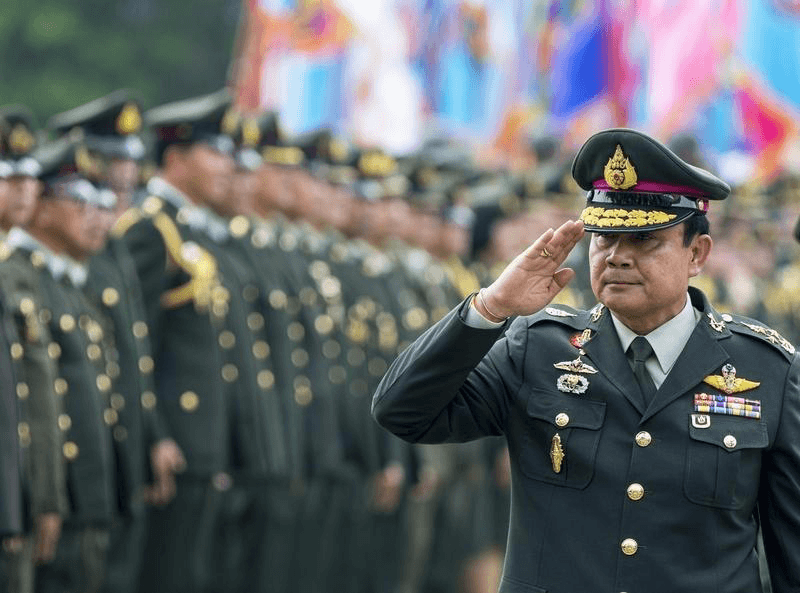
Currently, Prayut has more than 538,000 followers on Facebook, 140,000 on Instagram and 36,000 on Twitter. Unlike in most interviews with journalists, where he is known to give curt responses and swear, the general sounds friendly, polite and almost unrecognisable on social media.
He uses hashtags on special occasions, calls himself “Uncle Too” – a nickname by which Thais now know him – and posts photos of various activities, from taking a selfie with schoolchildren to meeting Miss Universe 2018 contestants, greeting supporters, having breakfast with his wife and petting his dog.
“He takes a look at the content that goes out himself,” Puttipong said.

While Prayut is active on social media, he keeps a low profile in his party’s electoral campaign. He has never joined them on roadshows or in political debates despite calls from the media and general public.
Unlike in some other countries, political debates are a new phenomenon in Thailand. They thrive amid growing public excitement towards the upcoming vote featuring a raft of new parties in the political arena, which has long been dominated by old groups.
“These debates signify a blossoming democratic culture and Prayut’s refusal to participate reflects the fact that although he has become a politician, he has yet to adapt himself to the new status,” said political science professor Janjira Sombatpoonsiri from Bangkok’s Thammasat University.
“I believe he still considers himself a soldier but at the same time, he wants to be a politician. It’s just bizarre.”
If Prayut is to return to power after the election, she added, his new tenure could be a different and more challenging one, compared to how it is currently.
“The public could expect him to act like a politician and not a soldier who has restored peace in the country,” said Dr Janjira.

“He could be examined, criticised by people with different opinions or attacked by the media. But the way he is dealing with different opinions right now is still like a soldier. He hasn’t adapted himself to handling criticisms like a politician. He doesn’t change.”
She added: “But when you are running the country, it’s different from running an army. So, if you use your military habits with people in society, your actions could easily attract criticism.”
CNA
- Previous PM Lee to attend leaders’ retreat hosted by Malaysia PM Mahathir
- Next India likely to launch attacks against Pakistan between April 16-20: FM Qureshi




